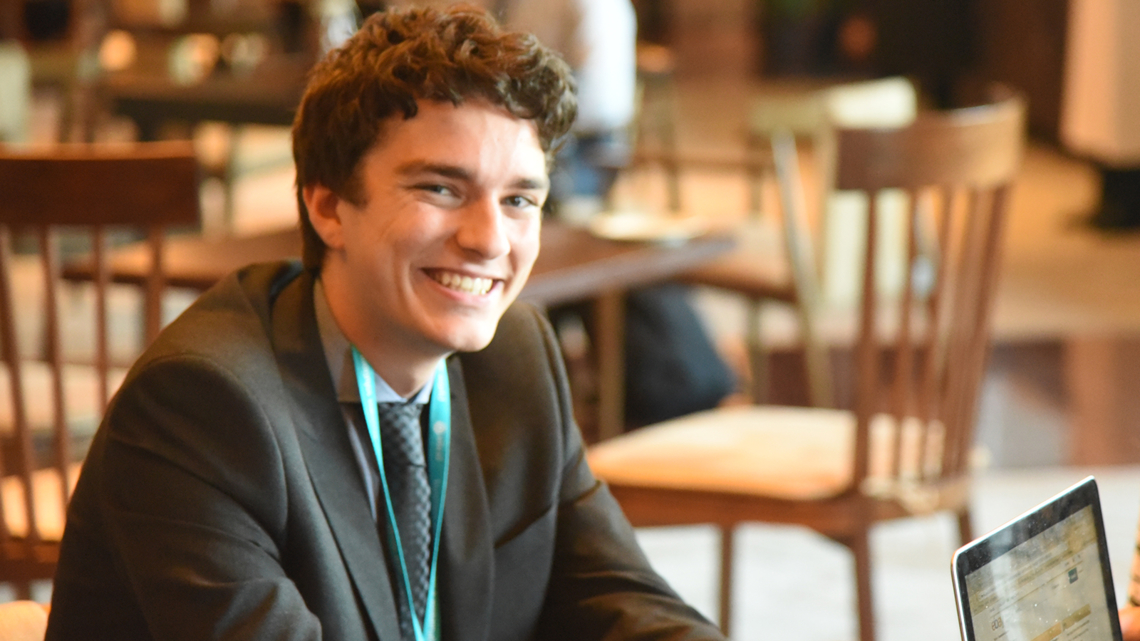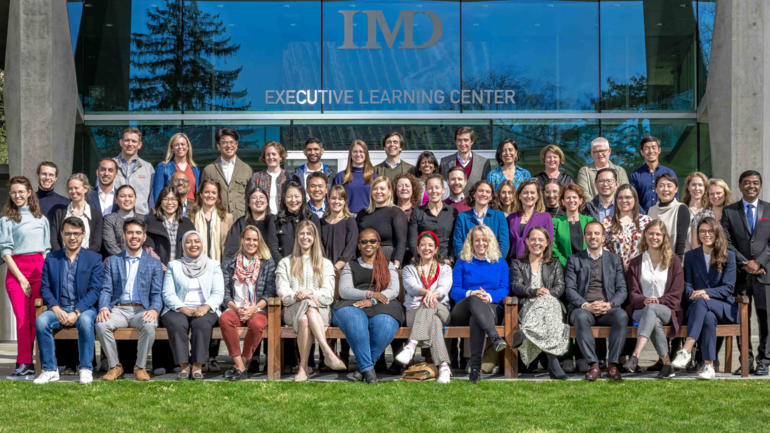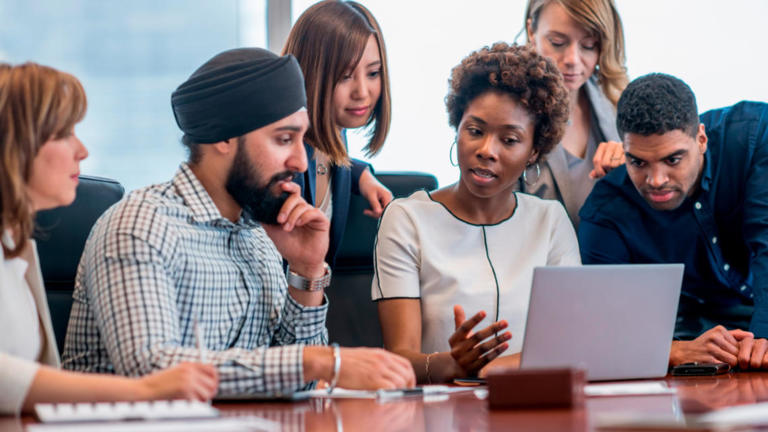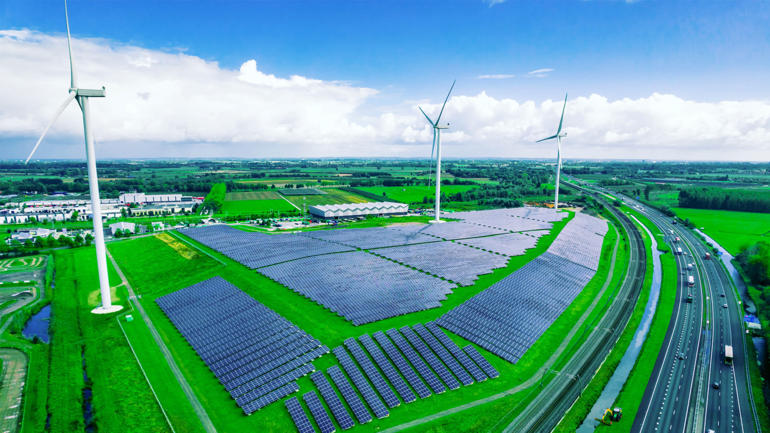By Michael Mander, Lancaster University
Cyeria is one of 34 participants in the WBCSD Leadership Program 2016– an intensive year-long executive education program focused on developing business and leadership skills in high- potential candidates. The program ingrains sustainability into everyday practices, and creates “Sustainability Ambassadors” to take what they have learnt from the program and apply it back to their companies.
The WBCSD Leadership Program has been in place for 15 years. While there have been name changes, the core objectives remain the same: preparing the leaders for the sustainability challenges of today – and tomorrow.
“These conversations about sustainability, and what my company does, and how we’re impacting the environment – they started showing up at the dinner table - and that’s where my interest piqued,” Cyeria explained, “You can’t not have answers for your kids. So really that’s where it hit home for me.”
The 2016 alumni have spent ten months developing leadership skills, learning about sustainability and networking with leading figures in the business and sustainability world. While there is group and individual work conducted over the full program, three weeks take place in-person at different locations. The 2016 program has taken the group from Yale University, to New York and the Netherlands, and now culminated at the WBCSD 2016 Council Meeting in Chennai, India.
While the program focuses on sustainable development, it also develops leadership skills that can be implemented at every workplace, and gives participants the chance to network with others and share best practices. Cyeria explained that “listening to the people who work outside of my industry and incorporating their views into how I shape things for myself has just been an incredible growth.”
“It’s really useful to see what other companies are doing and take some of those learnings back to BT”, said Gaurav Gupta, head of Business Development at BT: “There’s group and individual work that needs to be done for many months - you go much deeper into the subject matter. My group project has really helped in terms of understanding what skills are required for social innovation.”
As sustainability increasingly moves to the forefront of modern business management, there was no better setting for these conversations than the WBCSD meeting in Chennai: a gathering of forward-thinking businesses that are taking a lead in developing innovative sustainable solutions, and working together to implement strategies that will reduce their footprint on their environment.
Participants were immersed in this exciting and inspiring event and surrounded by knowledge and ideas, not just about individual company challenges, but also about the challenges that developing markets like India face as we move to achieve the SDGs and implement the Paris Agreement.
In this context, the selection process for the Leadership Program is important. Every year, the participants are nominated by the Liaison Delegates (LDs) of WBCSD member companies. In this way, LDs take an active role in shaping the experience for their company, and ensuring that their organization benefits as much from the Leadership Program as the individual does themselves.
Brendan LeBlanc, LD for EY, says “There’s value to having this experiential learning on topics that aren’t really explicitly managed in most corporations. You take someone, pluck them out of their regular job and talk about these sustainable development priorities.”
Another LD, Amélie Rouvin from Veolia, who also participated in the 2016 program, said “This program is a unique opportunity to learn and exchange with people from different companies across different sectors across the world. The mix between sessions from academics, NGOs, government officials, business as well as individual and group projects is a great chance to explore new opportunities. This program brings high value to the individual, but also the department and the entire company.”
Suzanne Feinmann leads the program for WBCSD and works closely with the participants. She said that the program is a unique opportunity to develop sustainability leaders for the future.
“The program is intensive and challenging. It’s hard work, each person has to do an individual project and a group project, and we give them challenging topics. But it’s long-lasting, it’s about bringing sustainability into their professional life to make a better and more sustainable future for their companies but also society.”
The program has a sound academic foundation. Professor Gail Whiteman, WBCSD’s Professor in Residence, works in partnership with WBCSD Managing Director Rodney Irwin, an Honorary Teaching Fellow at Lancaster University and will be appointed an Honorary Professor of Accounting and Sustainability at Leuphana University in Germany later this year. Rodney is the course director of the Leadership Program and under his stewardship the Program has grown in ambition and impact.
“Since 2015 we’ve delivered the academic part of the program in partnership with WBCSD’s first Knowledge Partner, Yale University and in particular with The School of Management (SOM), The School of Forestry and Environmental Science (FES) and The Center for Business and the Environment at Yale (CBEY). This world renowned and iconic seat of learning and research complements WBCSD and ensures that the program has a solid academic foundation”, Rodney said.
In the course of the 2016 program, 34 individual projects and 5 group projects were produced and commended by industry figures, including WBCSD President and CEO Peter Bakker in his closing remarks at the WBCSD Council Meeting, and Unilever CEO Paul Polman, who is also Chairman of the WBCSD. Mr Polman is a strong supporter of the program and Unilever sends participants every year to benefit from the experience.
Suzanne explains: “Those group projects bring a fresh perspective to the World Business Council. It’s so important, and this has been said by people who have read those reports.”
Experiential learning is also an important part of the program. Suzanne said: “Taking the participants out of the classroom is essential. You can’t convince people only with numbers, or power point presentations - you need more than that.”
Intake for the 2017 program, titled “Integrating strategic sustainability into business decision-making” is now open. All the 2016 participants encouraged WBCSD LDs to nominate someone from their company to take part and benefit from the experiences and lessons that come with participation.
The program fees of CHF 10,000 per participant covers all operational and administrative costs of the program, as well as the registration fee to attend the WBCSD Council Meeting in Mexico City. Companies that send two participants receive a discount of 15% for the second candidate.
In 2017, participants will begin at Yale University. Working closely with the Yale School of Management and the Yale School of Forestry and Environmental studies, they’ll learn from renowned academics about the issues facing businesses today and how they are being addressed.
“This gives a different perspective with great professors talking about sustainability and how they see it. After these workshops we then go to New York to get the business perspective on the agenda,” explained Suzanne.
Participants will then head to Germany where they will take part in experiential learning opportunities, such as field trips and company visits. Their program will conclude at the WBCSD Council Meeting, in Mexico City.
“If I could reflect and give advice to future participants” said Cyeria Jackson, “I would say: when I first walked into this classroom, I heard these people talking about issues that maybe I should care about - but issues that don’t impact my incentive or what my kids do on a daily basis.
“But then as I started to think about the issues, I realized that yes they do impact my incentive. You start to think about the business decisions you make through the sustainability lens. This is what I’m leaving my kids.”








